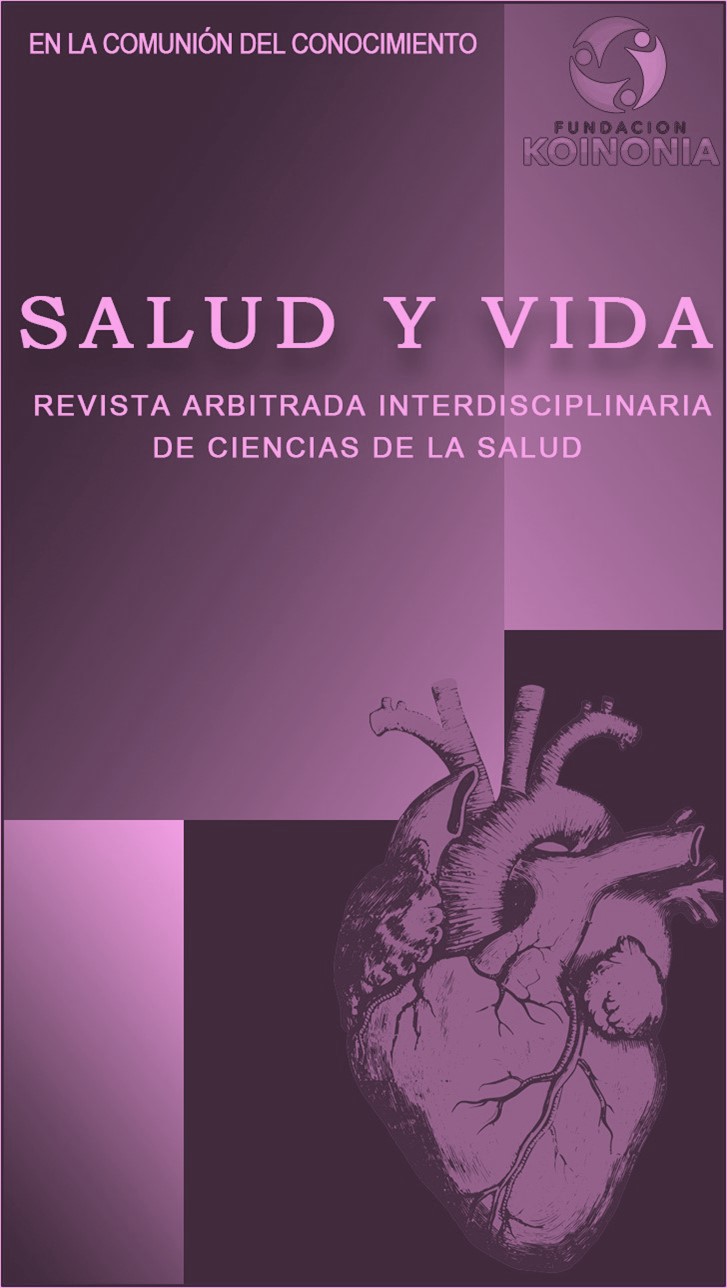Application of 10 corrects in medication administration by nursing interns
DOI:
https://doi.org/10.35381/s.v.v8i2.4240Keywords:
Behavioral Medicine, Specialties Nursing, Public Health Nursing, (Source: DeCS)Abstract
Objective: to describe the application of 10 correct procedures in medication administration by nursing interns. Method: Descriptive documentary, 20 scientific articles published in PubMed, Scielo, Scopus were analyzed. Conclusion: The application of the “10 corrects” in the administration of medications by nursing interns is fundamental to guarantee patient safety and minimize errors in clinical practice. However, factors such as lack of adequate training, work overload and constant interruptions hinder their effective implementation. It is essential to reinforce intern training, promote double-checking and create work environments that minimize distractions, which will significantly improve adherence to these principles and, consequently, the quality of care provided.
Downloads
References
Assunção-Costa L, Costa de Sousa I, Alves de Oliveira MR, et al. Drug administration errors in Latin America: A systematic review. PLoS One. 2022;17(8):e0272123. http://dx.doi.org/10.1371/journal.pone.0272123
Poblete Troncoso MdC, Miño González CG, Marchant-Fuentes C, Arancibia-Pacheco MT. Sobrecarga, equivocación, falta de capacitación: factores contribuyentes en errores de medicación en hospital público chileno [Overload, mistake, lack of training: contributing factors in medication errors in a Chilean public hospital]. Index Enferm. 2020;29(3):112-116.
Gates PJ, Meyerson SA, Baysari MT, Westbrook JI. The Prevalence of Dose Errors Among Paediatric Patients in Hospital Wards with and without Health Information Technology: A Systematic Review and Meta-Analysis. Drug Saf. 2019;42(1):13-25. http://dx.doi.org/10.1007/s40264-018-0715-6
Alshehri GH, Keers RN, Ashcroft DM. Frequency and Nature of Medication Errors and Adverse Drug Events in Mental Health Hospitals: a Systematic Review. Drug Saf. 2017;40(10):871-886. http://dx.doi.org/10.1007/s40264-017-0557-7
Keers RN, Williams SD, Cooke J, Ashcroft DM. Prevalence and nature of medication administration errors in health care settings: a systematic review of direct observational evidence. Ann Pharmacother. 2013;47(2):237-256. http://dx.doi.org/10.1345/aph.1R147
Koyama AK, Maddox CS, Li L, Bucknall T, Westbrook JI. Effectiveness of double checking to reduce medication administration errors: a systematic review. BMJ Qual Saf. 2020;29(7):595-603. http://dx.doi.org/10.1136/bmjqs-2019-009552
Diaz D, et.al. Desempeño del personal de enfermería durante la administración de tratamiento [Nursing staff performance during treatment administration]. Revista Venezolana de Enfermería y Ciencias de la Salud. 2023;16(1):29-34.
Sassaki RL, Cucolo DF, Perroca MG. Interruptions and nursing workload during medication administration process. Rev Bras Enferm. 2019;72(4):1001-1006. http://dx.doi.org/10.1590/0034-7167-2018-0680
Capitán del Río I. Seguridad del paciente e indicadores de calidad en CMA [Patient safety and quality indicators in CMA]. Cirugia Andaluza. 2022;33(4):451-461.
Ma JH, Bai Y, Xie DS, Yang GF. Factors Influencing the Interruption of Nursing Document Writing in the Intensive Care Unit: A Cross-Sectional Survey. J Multidiscip Healthc. 2023;16:419-427. http://dx.doi.org/10.2147/JMDH.S394817
Johnson M, Sanchez P, Langdon R, et al. The impact of interruptions on medication errors in hospitals: an observational study of nurses. J Nurs Manag. 2017;25(7):498-507. http://dx.doi.org/10.1111/jonm.12486
Clark A, Wolgast KA, Mazur N, Mekis A. Leading Change in Nurse Bedside Shift Report. Nurs Clin North Am. 2020;55(1):21-28. http://dx.doi.org/10.1016/j.cnur.2019.10.002
Oner B, Zengul FD, Oner N, Ivankova NV, Karadag A, Patrician PA. Nursing-sensitive indicators for nursing care: A systematic review (1997-2017). Nurs Open. 2021;8(3):1005-1022. http://dx.doi.org/10.1002/nop2.654
Wang W, Jin L, Zhao X, Li Z, Han W. Current status and influencing factors of nursing interruption events. Am J Manag Care. 2021;27(6):e188-e194. http://dx.doi.org/10.37765/ajmc.2021.88667
Reed CC, Minnick AF, Dietrich MS. Nurses' responses to interruptions during medication tasks: A time and motion study. Int J Nurs Stud. 2018;82:113-120. http://dx.doi.org/10.1016/j.ijnurstu.2018.03.017
Oshikoya KA, Oreagba IA, Ogunleye OO, Senbanjo IO, MacEbong GL, Olayemi SO. Medication administration errors among paediatric nurses in Lagos public hospitals: an opinion survey. Int J Risk Saf Med. 2013;25(2):67-78. http://dx.doi.org/10.3233/JRS-130585
Keers RN, Williams SD, Cooke J, Ashcroft DM. Causes of medication administration errors in hospitals: a systematic review of quantitative and qualitative evidence. Drug Saf. 2013;36(11):1045-1067. http://dx.doi.org/10.1007/s40264-013-0090-2
Alsulami Z, Choonara I, Conroy S. Paediatric nurses' adherence to the double-checking process during medication administration in a children's hospital: an observational study. J Adv Nurs. 2014;70(6):1404-1413. http://dx.doi.org/10.1111/jan.12303
Westbrook JI, Li L, Raban MZ, et al. Associations between double-checking and medication administration errors: a direct observational study of paediatric inpatients. BMJ Qual Saf. 2021;30(4):320-330. http://dx.doi.org/10.1136/bmjqs-2020-011473
Chiang HY, Lin SY, Hsu SC, Ma SC. Factors determining hospital nurses' failures in reporting medication errors in Taiwan. Nurs Outlook. 2010;58(1):17-25. http://dx.doi.org/10.1016/j.outlook.2009.06.001
Published
How to Cite
Issue
Section
License
Copyright (c) 2024 Brayan Geovanny Quiguantar-Delgado, Lesly Gisell Luna-Aguilar, Nayeli Lisbeth Narváez-Irua, Olga Alonzo-Pico

This work is licensed under a Creative Commons Attribution-NonCommercial-ShareAlike 4.0 International License.
CC BY-NC-SA : Esta licencia permite a los reutilizadores distribuir, remezclar, adaptar y construir sobre el material en cualquier medio o formato solo con fines no comerciales, y solo siempre y cuando se dé la atribución al creador. Si remezcla, adapta o construye sobre el material, debe licenciar el material modificado bajo términos idénticos.
OAI-PMH: https://fundacionkoinonia.com.ve/ojs/index.php/saludyvida/oai.









